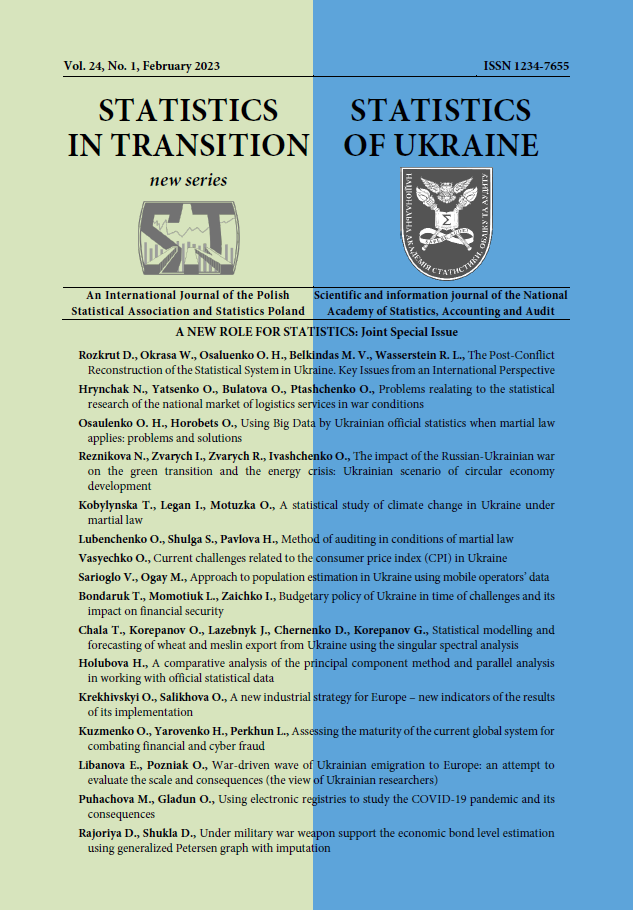Method of auditing in conditions of martial law
Method of auditing in conditions of martial law
Author(s): Olha Lubenchenko, Svitlana Shulga, Halyna PavlovaSubject(s): Economy, National Economy, Public Finances
Published by: Główny Urząd Statystyczny
Keywords: war; risk; business entities;
Summary/Abstract: In the article there are considered methodical recommendations on the actions of auditors during martial law. They relate to such stages of the audit as the preparatory phase, the planning phase, the task implementation and the final phase. The preparatory stage requires the identification of the client and the conclusion of an audit agreement. Under martial law,new risks are emerging, systematized by the authors and related to the identification of persons involved in terrorist activities and the proliferation of weapons of mass destruction. The systematization of risks and the use of IT technologies to identify and verify the client allows auditors, as specially designated entities of primary financial monitoring, to identify and freeze the assets of such persons in a timely manner and stop providing any services. At the client acceptance and assignment stage, auditors assess ethical threats. As a result, a working paper has been developed to assess ethical threats in the light of martial law. At the planning stage, special attention should be paid to reviewing risks, namely how military aggression affects the continuity of any business. Clarification of risk factors for termination allows you to plan audit procedures to gather audit evidence and further determine the auditor's opinion on continuity (opinion with an explanatory paragraph, opinion with a reservation, negative opinion, disclaimer of opinion). One of the effective procedures for collecting audit evidence at the stage of the task is inventory.
Journal: Statistics in Transition. New Series
- Issue Year: 24/2023
- Issue No: 1
- Page Range: 89-103
- Page Count: 15
- Language: English

